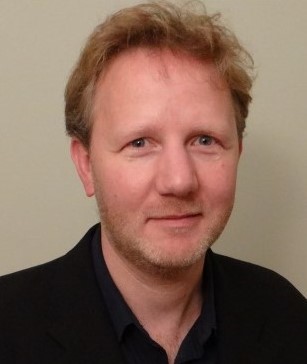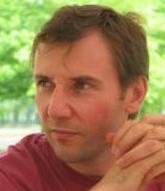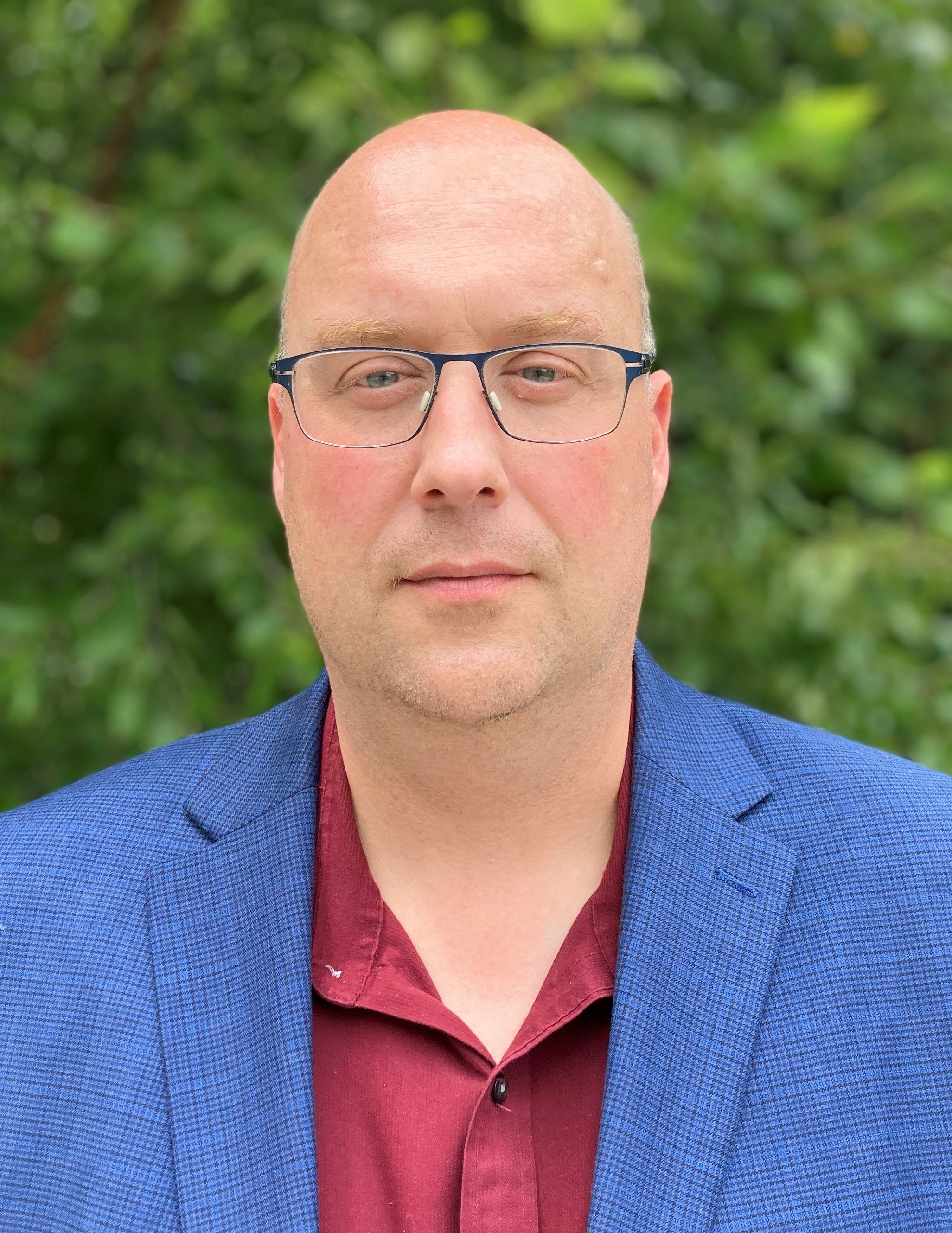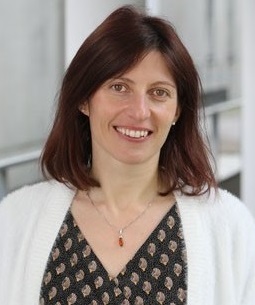
Conférenciers
Christophe CopéretProf. Christophe Copéret (CCH) was trained in chemistry and chemical engineering at CPE Lyon, France, and carried out a PhD in chemistry with Prof. E.i. Negishi (Purdue University, USA – 1991-1996), where he investigated the synthesis of complex molecules via Pd-catalyzed carbonylation reactions. After a postdoctoral stay with Prof. K.B. Sharpless (Scripps), CCH was offered a research position at CNRS in 1998 and was promoted CNRS Research Director in 2008. Since 2010, CCH is Professor in the Department of Chemistry and Applied Biosciences, ETH Zürich. His scientific interest lies at the frontiers of molecular, material and surface chemistry as well as NMR spectroscopy with the aims to design molecularly-defined solid catalysts through detailed mechanistic studies and structure-activity relationships. CCH is the President of the Platform Chemistry of the Swiss Academy of Sciences (SCNat), a member of boards (Swiss Chemical Society and EuChemS) and advisory boards of numerous journals (Catal. Lett., Catal. Sci. & Eng., Chem. Sci., Helvetica, Topics Catal…). CCH is also Associate Editor for the Journal of the American Chemical Society. Besides his scientific activities, CCH enjoys literature, history, cooking and wine tasting, probably a reminiscence of his childhood spent in the vineyards in Fleurie (La Reine), one of the famous crûs of Beaujolais, just ca. 50 km North of Lyon. NMR • Surface chemistry • Catalysis • Material chemistry |
|
Cyrille CostentinCyrille Costentin received his undergraduate education at Ecole Normale Supérieure Paris-Saclay and pursued his graduate studies at the University Paris Diderot (Paris 7) where he received his Ph.D. in 2000 under the guidance of Prof. J-M. Savéant and Dr. P. Hapiot. After a postdoc at the University of Rochester, he joined the faculty at the University of Paris Diderot as Associate Professor in 2001. He was promoted Professor in 2007. His area of expertise includes mechanisms and reactivity in electron transfer chemistry with particular recent emphasis on electrochemical and theoretical approaches to proton-coupled electron transfer processes and catalytic processes for small molecule activation. He is an expert in molecular electrochemistry and he was a Visiting Scholar at Harvard University from 2016 to 2019 working with Prof. D. G. Nocera. In September 2019 he joined the Département de Chimie Moléculaire at the Université Grenoble-Alpes where he is now leading the group “Electrochimie Moléculaire et Photochimie Redox”. Electrochemistry • Catalysis • Small molecules activation |
|
Silvia Diez-GonzalezDr. Silvia Díez-González graduated in 2000 from the Universidad del País Vasco (Spain) and Université Paris XI (France) with a MSci in Organic Chemistry. After a Ph.D on organosilicon chemistry at Paris XI, she joined the group of Professor Steven P. Nolan as a Postdoctoral Fellow at University of New Orleans in 2004. Two years later the group moved to the ICIQ (Spain) and she was promoted to Scientific Group Coordinator. In 2009 and after a brief walk on the theoretical side of chemistry (Professor Feliu Maseras, ICIQ), Silvia joined the Department of Chemistry at Imperial College London as part of the first promotion of Imperial College Junior Research Fellows, where she is currently a Senior Lecturer. She is the Head of the Inorganic Teaching Section and co-director of the MRes in Catalysis: Chemistry & Chemical Engineering. Main group chemistry • Catalysis • Cycloadditions • Green chemistry |
|
Nicolas MézaillesNicolas Mézailles was trained in chemistry and chemical engineering at Ecole Nationale de Chimie de Toulouse, France (1992), and subsequently obtained his Ph.D. from Purdue University (USA, with Prof. C. P. Kubiak) in 1997. After a post doc in the laboratory of prof. F. Mathey at the Ecole Polytechnique, working with prof. P. Le Floch, he was recruited by the CNRS in the same laboratory (UMR 7653) in 1998. He was promoted Research Director 2nd class (DR2) in 2008. In 2012, he joined the “Laboratoire Hétérochimie Fondamentale et Appliquée” (UMR 5069), creating the “SHEN” team (Systèmes de hautes énergies), and was promoted DR1 in 2017. In recent years, N. Mézailles has been interested in the chemistry of carbene complexes obtained from geminal dianions; the synthesis of metal and metal phosphides nanoparticles; as well as the study of N2 reduction by designed transition metal complexes. Homogeneous catalysis • N2 reduction • Nanoparticle synthesis • DFT calculations |
|
Véronique MicheletVéronique Michelet completed her graduate studies at Ecole Nationale Supérieure de Chimie de Paris (ChimieParisTech, France) and received her PhD degree in 1996 from Sorbonne University in the group of Pr. J.-P. Genêt. After post-doctoral research in the groups of Pr. J.D. Winkler (University of Pennsylvania, USA) and A.G.M. Barrett (Imperial College, UK), she was appointed at ChimieParisTech as CNRS Associate Researcher in 1998, promoted Director of Research in 2007 and obtained a Professor position at the Institut de Chimie de Nice, Université Côte d’Azur in 2017. Her work has been recognized through several awards including the Bronze medal of CNRS (2006), the ACROS award of Société Chimique de France (2010) and the DCO award (Division de Chimie Organique de la Société Chimique de France, 2022). Her research interests combine fondamental and applied aspects of catalysis for the development of new synthetic methodologies for carbon-carbon and carbon-heteroatom formations. They involve asymmetric catalysis, and the development of novel catalytic systems for atom- and step-economical reactions such as cycloisomerization reactions and domino processes. Gold catalysis is one of her favorite research topics. Organoleptics • Organometallic • Polymers |
|
Mike NeidigOriginally from a dairy farming community in rural Pennsylvania, Michael received his BA in chemistry from Colgate University in 1999. Following studies at the University of Cambridge as a Churchill Scholar leading to an MPhil degree in chemistry, he moved to Stanford University where he received his PhD in chemistry in 2007 in the group of Professor Edward Solomon. After brief stops at Dow Chemical as a Senior Research Chemist and Los Alamos National Lab as a Director’s Postdoctoral Fellow, Michael joined the Department of Chemistry at the University of Rochester as an Assistant Professor in 2011 with subsequent promotion to Associate Professor in 2017, Professor in 2020 and the Marshall D. Gates, Jr. Professor of Chemistry in 2021. He moved to the University of Oxford as Professor of Chemistry in 2022 and Tutorial Fellow in Inorganic Chemistry at Magdalen College. His research interests and expertise include synthetic and mechanistic organometallic chemistry, catalysis and physical-inorganic chemistry, with an emphasis on iron chemistry and catalysis. His work has been recognized through several awards including a Sloan Research Fellowship (2015), National Science Foundation CAREER Award (2015) and a DOE Early Career Award (2016). Organometallics • Catalysis • Physical-Inorganic Chemistry |
|
Aline NonatAline Nonat was appointed CNRS researcher at the Institut Pluridisciplinaire Hubert Curien in 2010 in the SynPA team in Strasbourg. Her research interests and expertise are centred around the design, synthesis and coordination chemistry applied to analytical sciences and bio-imaging. Her latest results deal with energy transfer phenomena in polymetallic assemblies and with the application of bispidine chelates to Magnetic Resonance Imaging and Positron Emission Tomography. In 2019, she was awarded Bronze medal of CNRS. Luminescence • Lanthanides • Contrast agents • Photophysics |
|
Lucie NorelDr. Lucie Norel was born in the North of France, where she grew up. She graduated from Université Pierre et Marie Curie in 2008 with a PhD in the field of Molecular Magnetism directed by Prof. Cyrille Train. She then moved to Université de Rennes 1 for a post-doctoral position under the guidance of Dr. Jeanne Crassous on metallahelicene and was then appointed Assistant Professor in 2009. She developed organometallic wires and switches based on the association of ruthenium acetylide and photochromic units eventually leading to multifunctional molecular junctions. Then, she has started a research project on the photoswitching of lanthanide coordination complexes to control the fascinating magnetic and/or optical properties of these complexes remotely with light. In 2017, she could enjoy a one year research stay in the group of Prof. Jeffrey Long in amazing California to learn more on Single Molecule Magnets. Since her first participation to the memorable 2010 edition in Lyon, she has been a big fan of Gecom Concoord ! Magnetism • Single-Molecule Magnet • Lanthanides • Photoswitchable complexes |







